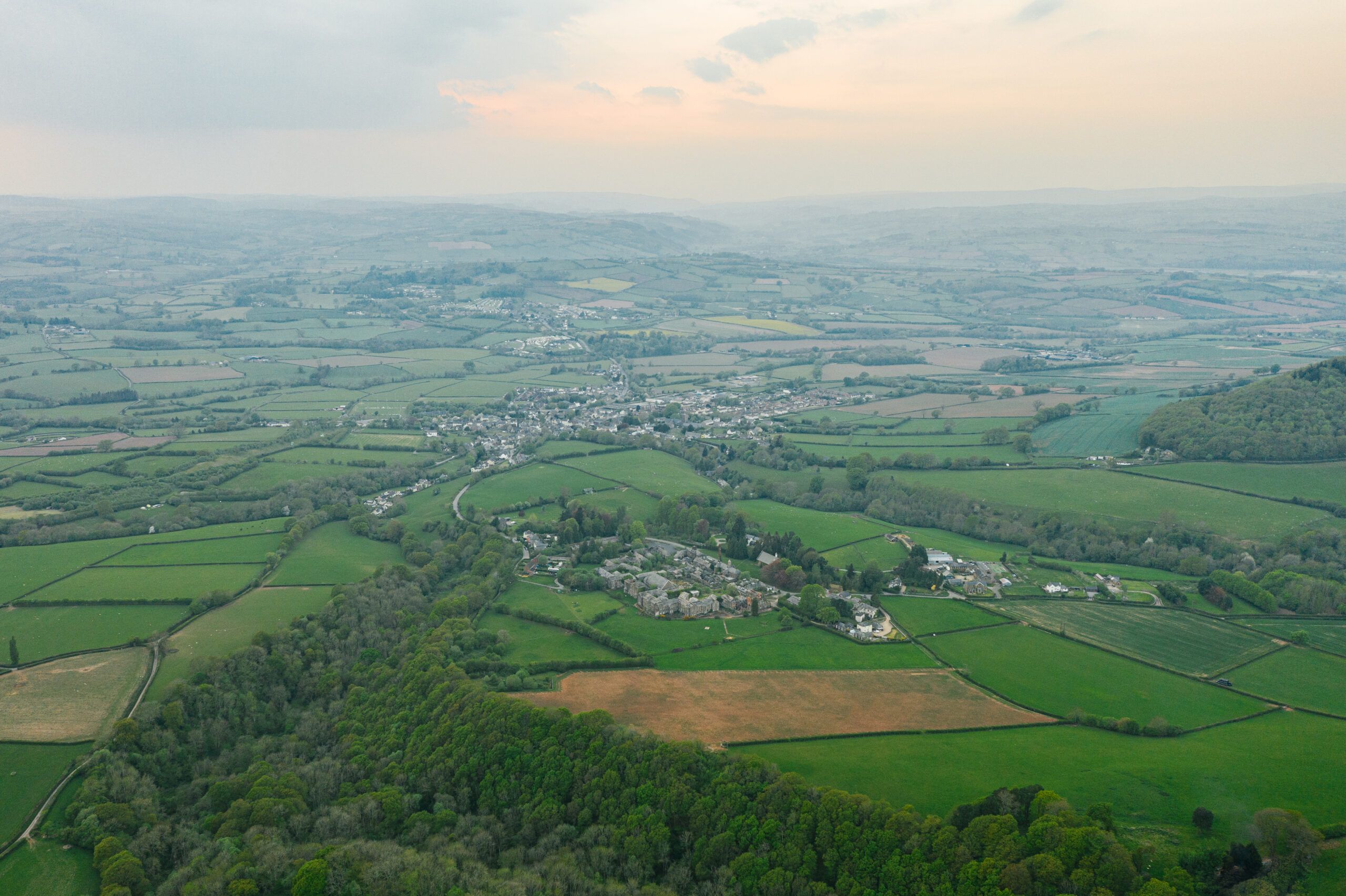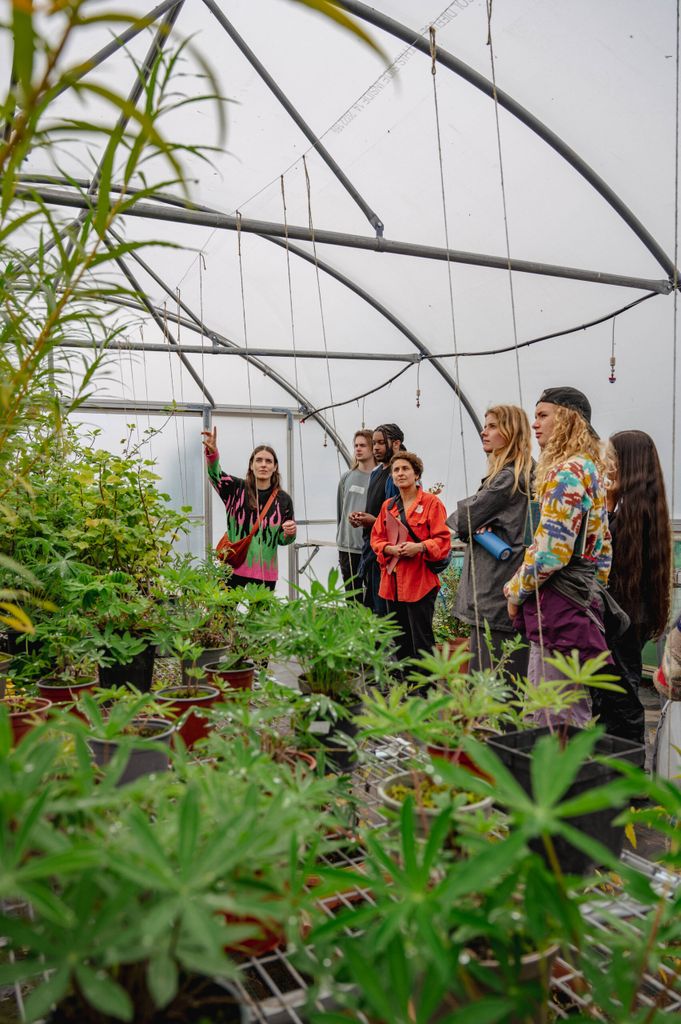
Our Impact
Black Mountains College is devoted to confronting climate breakdown and fostering regenerative mindsets and practices to ensure a habitable world. It is our goal to deliver accessible education that empowers communities, and the people within them, to flourish in a warming world.
OUR MISSION
Our mission is to deliver accessible education that empowers communities, and the people within them, to flourish in a warming world.
OUR
PURPOSE
Black Mountains College exists to explore how to properly respond to this challenge. We don’t pretend to have all the answers, instead, we are committed to an educational programme that explores the following key questions with our students, teachers and collaborators:
- What kinds of relationships, with each other and with other species will be required?
- How do we understand what is going on? What is our diagnosis of the situation we find ourselves in?
- What knowledge and skills will help us to address this challenge?
- How can we build a fair and just society?
We are committed to a fair and just society within a thriving biosphere, not to any particular solution, approach or perspective, but one that acknowledges individual needs and circumstances.
We recognise that we live in a world of diverse human and non-human beings with unique voices and perspectives. We aim to develop skills of negotiation, dialogue and conflict resolution to promote the well-being of all, addressing the current and historical relationships of power recognising that some voices and perspectives have been unjustly privileged over others.
Addressing the root causes of climate and ecological breakdown means grappling with questions of justice and equity, (climate justice and intergenerational justice for example) of exploitation and domination of nature and humans alike – so we are committed to critical analysis, equity, and equality in our practice and teachings.
The scale of the challenge we face requires transformative, systemic change across society – so we ask foundational questions, carry out research to push our boundaries of understanding, and engage practically in experimenting with new ways of doing things.
OPERATIONS
In our Governance, we aim for:
- Ways of working that align with these principles to include: a pay ratio of 1:3, board structure with student and staff representation, inclusive team meetings, regular walking staff supervisions, and long-term thinking
- An inclusive and equitable approach to governance that involves all participants in the learning community at all levels
- Policies, practices and structures that develop a respectful, inclusive, and empowering culture with wide range of opportunities to discuss and resolve key issues
- A commitment to peer learning and reflection
In our programmes, we know that:
- The systemic nature of the challenge we face requires working at multiple levels of education
- The universal human right to education is vital to allow us to understand and prepare for the changes to come, requiring accessibility to be uppermost in BMC’s approach to admissions and programming
- Many existing modes and structures of education reinforce unsustainable practices and discourses and need to be challenged and reimagined
- Acting in line with our principles requires a critical and innovative approach to progression and the choice of jobs and careers BMC facilitates
In land-use, we aim to:
- Create plans for using the land that acknowledges both human and non-human needs
- Manage activities with experimentation, inclusion, justice and transformation in mind
- Manage resources, emissions and pollution in the most just and sustainable ways possible
practice and pedagogy
While our pedagogical approach is not fixed, it is guided by the following elements:
creativity
Encouraging creative thinking and practice whether it is through arts-based work, problem-solving, or experimentation in our teaching and assessment methods.
embeddedness
Recognising that knowledge is not place-less and the solutions to challenges we face as a society are multiple and contextual. Embedding the college and its activities in the community and the land means that often the learning will have positive social and ecological outcomes too.
plurality
Our approach to learning engages actively with different learning styles, different forms of knowledge such as embodied and scientific approaches and different ways of learning such as outdoor learning.
Connection
We understand that many of the challenges we face have come from disconnection and seek to connect ourselves to each other, and to the wider natural world through our teaching. We also believe learning should be connected to real contexts and practical action, and work with our partners to create such opportunities.
Empowerment
We seek to empower our students to take action in the world and in their own lives by developing appropriate capacities, motivation, and critical awareness. Linking learning to social outcomes, both in terms of the overarching purpose of the course, or in concrete ways such as cooking for the community or building socially useful structures, makes the training meaningful and urgent and the lessons learned durable and transferable.

THE DIFFERENCE WE WANT TO MAKE
We envision a future where everyone has access to the knowledge and skills necessary to address climate change and its impacts. By integrating principles of social justice into our curriculum, we aim to foster a generation of leaders who can advocate for equitable policies and practices that protect both people and the planet.
- Education is central to building the future we want to see. Through our values, we want to ensure that:
- Individuals are empowered to flourish in a warming world, with the hope and creativity needed to thrive.
- Organisations develop the skills to adapt to climate impacts effectively.
- Communities build resilience, becoming better prepared for the challenges ahead.
- In delivering this difference we will report on our progress within our annual reporting and make ourselves accountable to the communities we work with.
WHY IS OUR WORK IMPORTANT?
Climate change is one of the most pressing issues of our time, disproportionately affecting vulnerable populations. Climate Scientists agree that the impacts of climate change, including extreme weather events, sea-level rise, and food insecurity, exacerbate existing inequalities.
At BMC, we believe that addressing climate change requires not just technological solutions, but also a deep understanding of social justice. By focusing on climate justice, we recognise that the climate and ecological crisis is as much a social and political problem, as well as an environmental one. We aim to create educational pathways that empower individuals to become advocates for equitable systems and environmental policies, ensuring that everyone has a voice in shaping our sustainable future.

The BMC Prospectus
Download the Black Mountains College prospectus for an overview of our courses, campuses, and vibrant student life
Visit us
Come along to one of our Discovery Days or Campus Tours to explore our campuses and meet your tutors